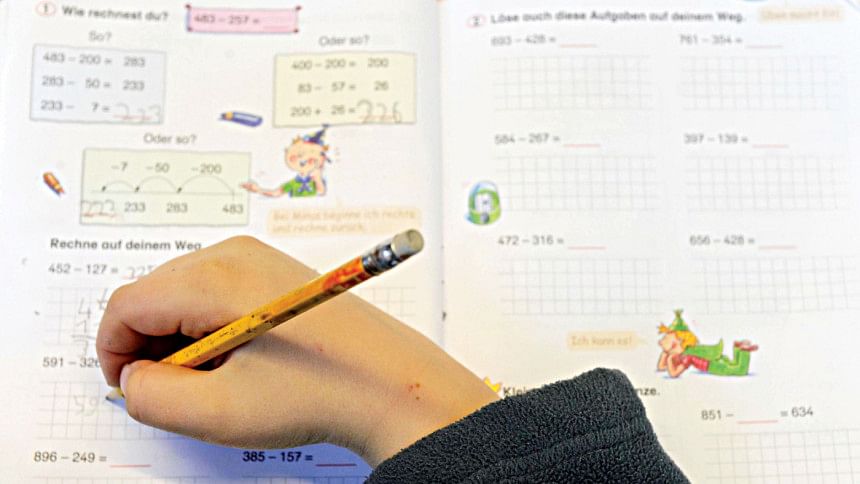Do you fear maths?

I
A maths test starts. You wait for the questions. Your heart is beating. Your palms sweat. You're at a crossroads. If this is the way you feel about maths in general or a maths test in particular, "You may say I'm a dreamer, but I'm not the only one."
II
Carl Friedrich Gauss was a famous German mathematician. When Gauss was a child, his maths teacher gave a problem to the class. Add: 1+2+ ... +100. It'll take ages to solve the problem. There's many steps in the solution. The teacher could take a nap.
Gauss came up with the answer in a few seconds: 5,050! The teacher asked, "How?" Gauss said he added 100 and 1 to get 101. Then 99 and 2 to get 101 again. So, in essence Gauss had 50 sets of 101. It became a multiplication problem of 50 x 101 = 5,050.
Why is it most of us can't think like Gauss? The answer lies in the way maths has been perceived over millennia.
III
Maths is probably the first test we take against a clock. Two minutes to solve a problem. This very thought gives butterflies and goosebumps. We fall out of love for maths, before we ever fall in to see what the fuss is all about.
To make matters worse, teachers and parents use our ability to do math as a metric to judge us against others. If you know maths, and you have a good IQ, you're the next Einstein in the family. The blue boy all the aunties love. If you're not, the fear and anxiety of maths starts for the rest of your life.
IV
Maryam Mirzakhani was born in Tehran in 1977. When she was in school, one of her teachers thought she wasn't talented in maths. But little Maryam kept persevering. She was an incarnation of Gauss. She wasn't talented in the eyes of the metrics of society because she wasn't solving problems in the set formula of steps. She was playing with numbers, like an artist plays with colours and a musician plays with notes.
Because Maryam kept on persevering, she became the first female to win the Fields Medal—the highest honour in mathematics—in 2014. She died in 2017 at the age of 40 due to cancer.
V
Albert Einstein, the German mathematician-physicist, is the ultimate genius. He's shown to have an IQ that's astronomical. His pioneering achievements in relativity defined and re-defined physics for generations. Did you know, Einstein's two papers on relativity were published ten years between them? The first in 1905 on special relativity, and the next in 1915 on general relativity.
What was Einstein doing in those ten years? He was thinking and re-thinking. Maths is like any other subject. Established problems can be solved quickly against the clock. Deeper problems have to be played around with to get the right portrait or the right tune.
VI
If maths makes you feel anxious, it doesn't necessarily mean you're bad at maths. The reverse could be true. You're bad at maths because you feel anxious. That's the way society has made it to be. After playing with maths if you find other things are more interesting like colours in paintings or notes in music, "follow your heart" like Santiago in The Alchemist. Knowing maths doesn't mean you're a wizard. Not knowing maths or not being good at it, can and never shall be the end of the world. Your fate may be written elsewhere.
Asrar Chowdhury teaches economics in classrooms. Outside, he watches Test cricket, plays the flute and listens to music and radio podcasts. Email: [email protected] or [email protected]

 For all latest news, follow The Daily Star's Google News channel.
For all latest news, follow The Daily Star's Google News channel. 



Comments